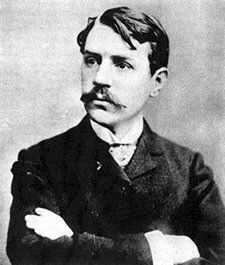Paul Bourget citations célèbres
Paul Bourget: Citations en anglais
Pierre Fauchery, as quoted by the character "Jules Labarthe"
The Age for Love
I, his dear confrère! Ah! if he had known!
The Age for Love
Pierre Fauchery, as quoted by the character "Jules Labarthe"
The Age for Love
Source: Cosmopolis (1892), Ch. 5 "Countess Steno"
“At certain moments, words are nothing; it is the tone in which they are uttered.”
A de certaines minutes, les mots ne sont rien, c’est le ton qui est tout.
Source: Cosmopolis (1892), Ch. 5 "Countess Steno"
Source: Cosmopolis (1892), Ch. 4 "Approaching Danger"
Pierre Fauchery, as quoted by the character "Jules Labarthe"
The Age for Love
Source: Cosmopolis (1892), Ch. 2 "The Beginning of a Drama"
“The cruelest revenge of a woman is to remain faithful to a man.”
La plus cruelle vengeance d'une femme est quelquefois de nous rester fidèle.
Physiologie de l'Amour Moderne http://books.google.com/books?id=5H5cAAAAMAAJ&q=%22La+plus+cruelle+vengeance+d'une+femme+est+quelquefois+de+nous+rester+fid%C3%A8le%22&pg=PA326#v=onepage (1889)
Pierre Fauchery, as quoted by the character "Jules Labarthe"
The Age for Love
Epilogue.
Cosmopolis (1892)
